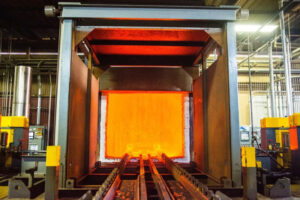Description
Isothermal graded quenching oil is a quenching medium for metal heat treatment, which usually takes mineral oil as base oil and adds many functional additives, such as cooling agent, antioxidant and brightener. The cooling agent can adjust the cooling speed, the antioxidant can prevent the oil from oxidation and deterioration during use, and the brightener is helpful to improve the surface smoothness of the quenched workpiece.
Performance characteristics:
-Precise temperature control: it can maintain a relatively stable cooling rate in a specific temperature range, and can realize isothermal quenching or step quenching process, so that the workpiece can obtain good structure and properties and reduce the tendency of deformation and cracking.
Excellent cooling characteristics: the cooling speed is faster in high temperature area, which can make the workpiece cool quickly and obtain the required hardness and strength; In the low temperature area, the cooling speed is slowed down to avoid excessive internal stress caused by too fast cooling.
-Good thermal stability: it is not prone to oxidation, cracking and other reactions at a higher temperature, and it can maintain stable performance for a long time and has a long service life.
-Strong oxidation resistance: The addition of efficient antioxidants can effectively inhibit the oxidation of oil products, reduce the formation of sludge and carbon deposits, maintain the cleanliness of quenching oil, and help improve the surface quality of workpieces.
Scope of application:
It is mainly suitable for quenching precision parts of various alloy steel, high carbon steel and other materials, such as molds, cutters, gears and so on. Isothermal graded quenching oil can play an important role in some workpieces which have strict deformation requirements and need to obtain specific structures and properties.
Precautions for use:
The oil temperature should be strictly controlled during use to ensure that it is within the temperature range required by the process. Regularly test the performance indexes of quenching oil, such as cooling characteristics, viscosity, acid value, etc., and maintain and replace it in time according to the test results. At the same time, it is necessary to keep the quenching oil clean and prevent impurities and moisture from being mixed in, so as not to affect the quenching effect.





